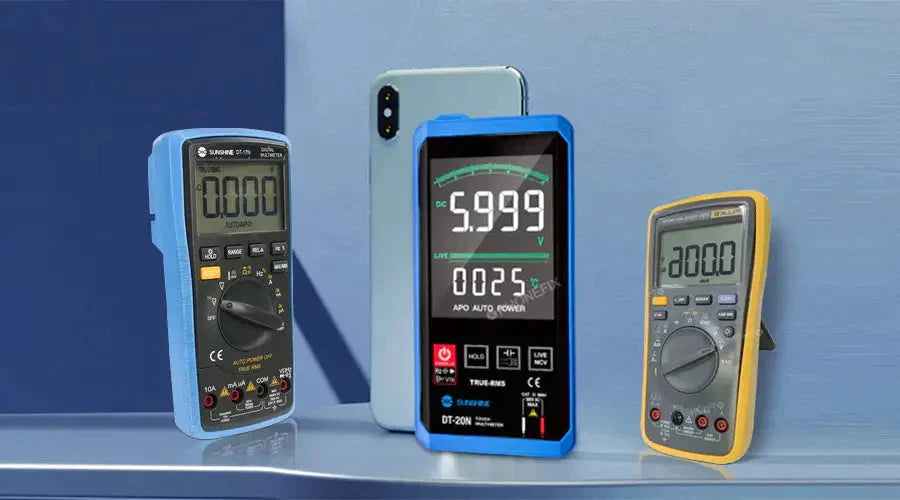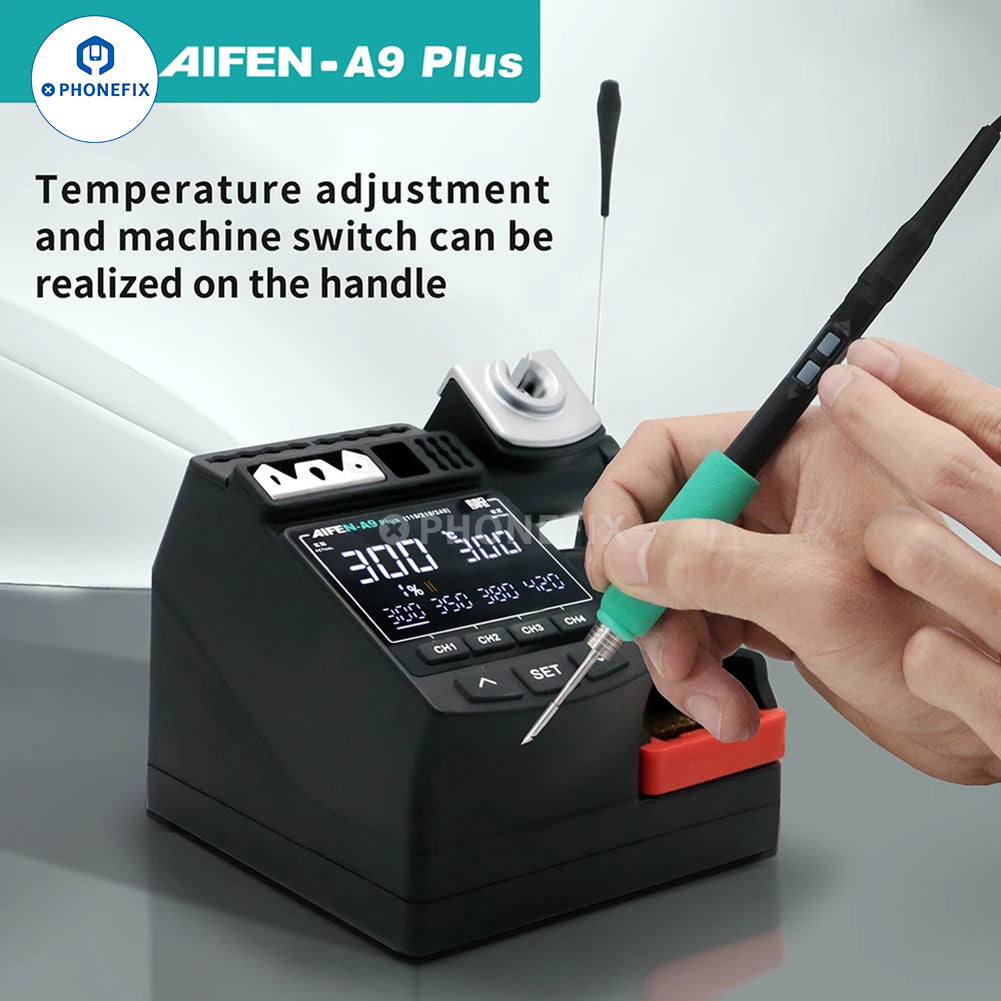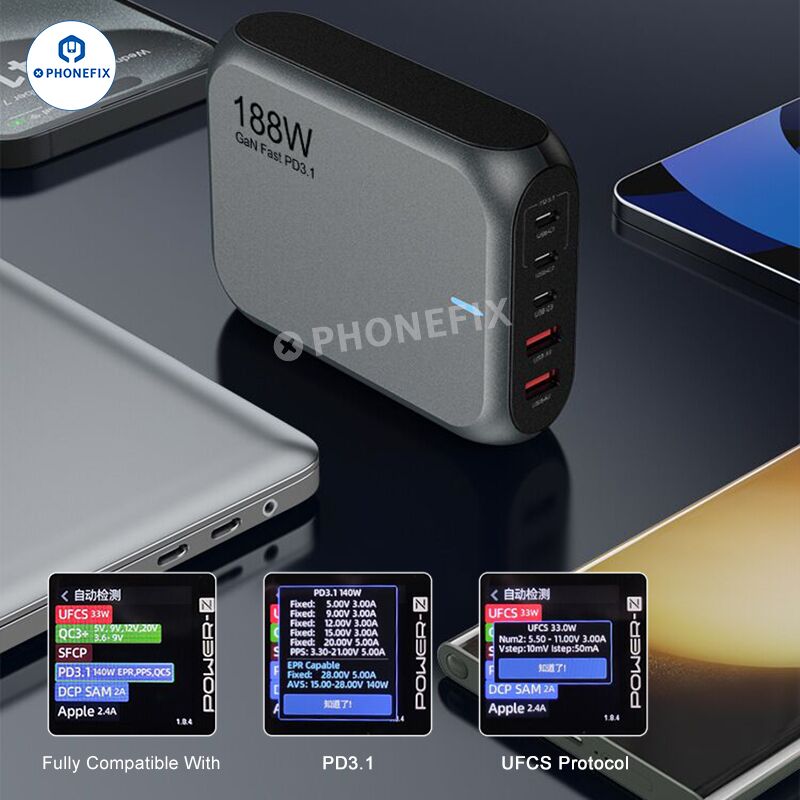
The most basic function of a multimeter is to measure the electricity of various objects and appliances.
An analog or digital multimeter is a tool used to measure current, voltage, and resistance. They are very useful instruments that can be utilized in a number of fields.
The multimeter is a must-have instrument for any electronic hobbyist, you can identify the problem just by a quick continuity test.
Learn more tools from the article: All Must-Have Tools For Common Cell Phone Repairs DIY
Differences between an analog and digital multimeter

Display – The first most obvious difference between an Analog and Digital multimeter is the display. The analog multimeter uses a needle to show the measured quantity, whereas the digital multimeter displays information in the form of digits.
This is similar to the difference between an Analog and Digital clock.
Accuracy – Since the analog multimeter uses a needle pointer to display values, this can increase the amount of parallax error when being read by the user giving it a lower accuracy.
Cost – The analog multimeter is less expensive compared to its digital counterpart due to the way that it is constructed and the components that it uses.
Input Resistance – The input resistance of an Analog multimeter varies with range, while a digital multimeter stays constant for all ranges.

The more functions a multimeter has, the more that it can do. But the multimeters with the most functions also tend to be more expensive. You must ultimately decide whether you are willing to pay extra for this added versatility.
Multimeters ranged from as low as four or five functions to as high as eight functions. But remember, functions don’t tell the entire story. It is also important to find tools that work well with the various applications that you have in mind.
Buyer’s Guide
Which were the best multimeters for phone repair? In terms of best overall pick, we have to go with the Fluke 15B 17B+ Digital Multimeter. It packs in plenty of solid features and is great for beginners and veteran handymen alike.


Any Disadvantages of Using Analog or Digital Multimeters?
We must answer another question: are there any disadvantages of using Analog devices vs digital devices?
Analog tools will always have fewer features than digital tools. But this doesn’t have to be a dealbreaker if you have very specific needs.
And analog devices are more fragile than digital ones. While an analog multimeter that you take good care of will last a great many years, all it takes is a single bad drop to throw off the accuracy of the needle.
Conclusion
All in all, the final verdict is that analog multimeters are better for experienced handymen. If you take care of your gear and don’t mind doing a bit of quick math in your head, these are very reliable tools.
But if you are new to multimeters or simply very worried about user error, you may need to use a digital multimeter instead.
Also Read:
How Do You Use and Choose Phone Repair Multimeter?












